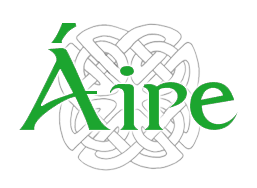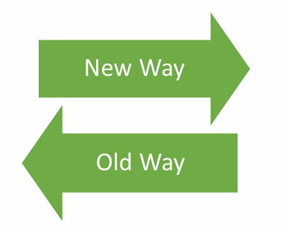Psychotherapy and Counselling: What are they and where do they come from?
From time to time, we at Áire Counselling & Psychotherapy will attempt to describe the concept of Psychotherapy and Counselling, how this discipline has developed into the various models we know today and the various issues that arise in people’s lives throughout their lifespan. We will begin by offering a brief overview of the birth of Psychotherapy and Counselling.
We humans have long tried to make sense of ourselves and the world we inhabit at any given time. From ancient times, this is why people have always used therapists, be they priests, gurus, wise ones, philosophers, doctors, good friends, or in fact just about anybody prepared to listen. People have always needed guides to help to try to bring some order into their inner and outer worlds. Modern psychology originated in Western Europe and the United States in the late 1800s (Sommers, Flanagan 2004). Much of the early history of psychotherapy is written from the perspective of privileged white men advocating their own particular theory. One such individual is often referred to as the “Father of Psychotherapy”. He is none other than Sigmund Freud. We will take a look at Freud among others at a later stage.
What Is Psychotherapy?
Psychotherapy is often referred to as “the talking cure”. Talking, expressing, verbalizing, or somehow sharing one’s pain is, in and of itself, potentially healing. There are many other definitions of this thing we call psychotherapy. For example:
• “A conversation with a therapeutic purpose” (Korchin, 1976).
• “The purchase of friendship” (Schofield, 1964).
• “Psychological treatment of emotional problems in which a trained person deliberately establishes a professional relationship with a client in order to:
(a) remove or modify or retard existing symptoms;
(b) mediate disturbed patterns of behaviour;
(c) Promote positive personality growth and development” (Wolberg, 1995).
But maybe Psychotherapy is so fluid that it cannot be copper fastened into one irrefutable definition according to Corsini & Wedding, 2000.
What Is Counselling?
In some quarters, it appears that some judgmental distinction is made between the practice of counselling and psychotherapy. In the Irish context, the Psychotherapy and Counselling professions are gearing up to be state regulated in the near future. There is an on-going debate on whether psychotherapy and counselling should be a single classification or if they should be individualized. For me personally, I cannot see how one can separate the “heads” from the “tails” on the same coin. Psychotherapy and counselling are the two sides of the same coin. This argument has gone on for many years.
Alfred Adler (1958) wondered if counselling had an inferiority complex with respect to its slightly older sibling, psychotherapy or, perhaps maybe, it could be claimed that psychotherapy has a superiority complex with respect to its younger rival, counselling. Counsellors have struggled with the definition of their craft in ways similar to psychotherapists. “Counselling is indeed an ambiguous enterprise. It is done by persons who can’t agree on what to call themselves, what credentials are necessary to practice, or even what the best way is to practice—whether to deal with feelings, thoughts, or behaviours; whether to be primarily supportive or confrontational; whether to focus on the past or the present. Further, the consumers of counselling services can’t exactly articulate what their concerns are, what counselling can and can’t do for them, or what they want when it’s over” (Kottler & Brown, 1996).
Here is a sampling of counselling definitions:
• Counselling is the artful application of scientifically derived psychological knowledge and techniques for the purpose of changing human behaviour” (Burke, 1989).
• “an activity . . . for working with relatively normal-functioning individuals who are experiencing developmental or adjustment problems” (Kottler & Brown, 1996).
What Is Psychotherapy?
Psychotherapy is often referred to as “the talking cure”. Talking, expressing, verbalizing, or somehow sharing one’s pain is, in and of itself, potentially healing. There are many other definitions of this thing we call psychotherapy. For example:
• “A conversation with a therapeutic purpose” (Korchin, 1976).
• “The purchase of friendship” (Schofield, 1964).
• “Psychological treatment of emotional problems in which a trained person deliberately establishes a professional relationship with a client in order to:
(a) remove or modify or retard existing symptoms;
(b) mediate disturbed patterns of behaviour;
(c) Promote positive personality growth and development” (Wolberg, 1995).
But maybe Psychotherapy is so fluid that it cannot be copper fastened into one irrefutable definition according to Corsini & Wedding, 2000.
What Is Counselling?
In some quarters, it appears that some judgmental distinction is made between the practice of counselling and psychotherapy. In the Irish context, the Psychotherapy and Counselling professions are gearing up to be state regulated in the near future. There is an on-going debate on whether psychotherapy and counselling should be a single classification or if they should be individualized. For me personally, I cannot see how one can separate the “heads” from the “tails” on the same coin. Psychotherapy and counselling are the two sides of the same coin. This argument has gone on for many years.
Alfred Adler (1958) wondered if counselling had an inferiority complex with respect to its slightly older sibling, psychotherapy or, perhaps maybe, it could be claimed that psychotherapy has a superiority complex with respect to its younger rival, counselling. Counsellors have struggled with the definition of their craft in ways similar to psychotherapists. “Counselling is indeed an ambiguous enterprise. It is done by persons who can’t agree on what to call themselves, what credentials are necessary to practice, or even what the best way is to practice—whether to deal with feelings, thoughts, or behaviours; whether to be primarily supportive or confrontational; whether to focus on the past or the present. Further, the consumers of counselling services can’t exactly articulate what their concerns are, what counselling can and can’t do for them, or what they want when it’s over” (Kottler & Brown, 1996).
Here is a sampling of counselling definitions:
• Counselling is the artful application of scientifically derived psychological knowledge and techniques for the purpose of changing human behaviour” (Burke, 1989).
• “an activity . . . for working with relatively normal-functioning individuals who are experiencing developmental or adjustment problems” (Kottler & Brown, 1996).

